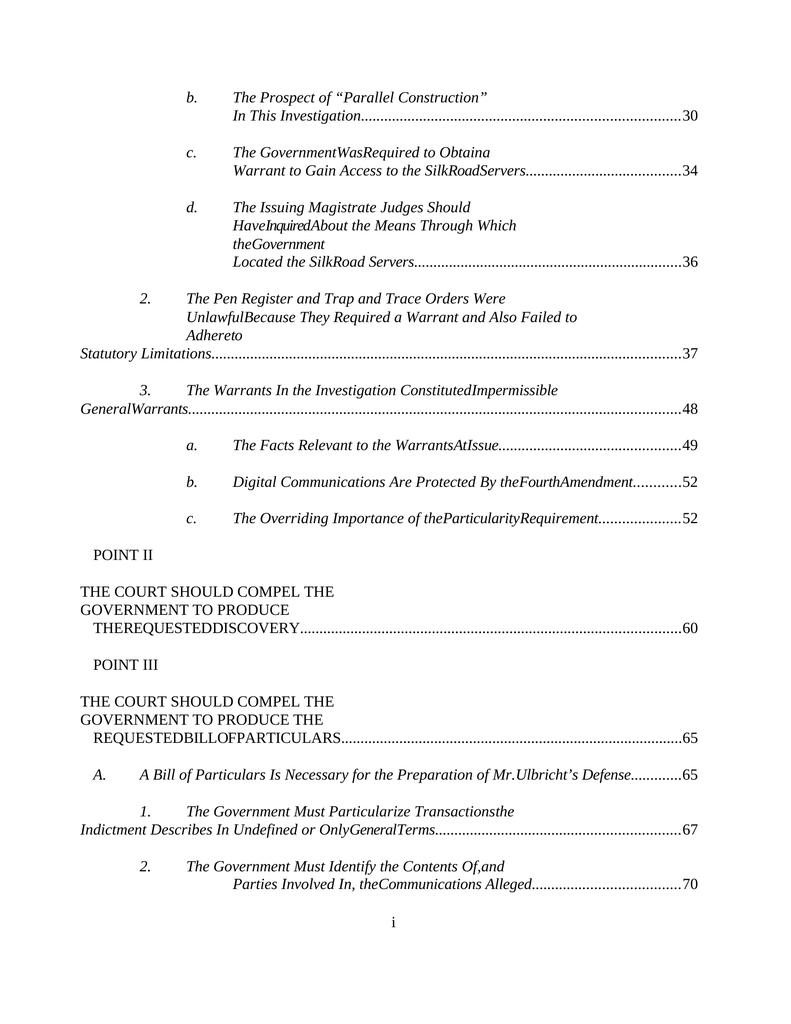

court systems in the 1940s and 1950s due to the widespread recognition that much of the information requested could be obtained more efficiently through the discovery process. The bill of particulars was abolished in nearly all U.S. Which States Allow the Use of a Bill of Particulars? If not, you can file a motion asking the court to force the submission of documentation. Once a demand has been received for a bill of particulars, the receiving party should submit it voluntarily. How is the Getting the Plaintiff to Answer the Bill of Particulars Enforced? Local court rules determine the format for which a bill of particulars must be prepared and submitted. In What Format Will You Receive the Response Bill of Particulars? The means by which the plaintiff determined amount owed and for what.List of charges per item, transaction, or service.List of dates associated with each item, transaction, or service.List of items for which payment is being sought.Agreement and/or contract of the relevant account.For instance, if you are being sued for an unpaid balance on a credit card, your demand for a bill of particulars should request: The nature of the lawsuit determines what should be included in a bill of particulars. What Should You Ask for in a Bill of Particulars? If you file a counterclaim, the Plaintiff may request a bill of particulars from you.

OK, so there is a situation where the Defendant would be asked for a bill of particulars. Under What Circumstances Would a Defendant Provide a Bill of Particulars to a Plaintiff? The Defendant requests it to clarify the case, the Plaintiff cannot request it. A bill of particulars includes no such proof or strategy, but only a list of reasons the lawsuit has been filed. This is the proof the Plaintiff has against the Defendant. In the discovery process, the Defendant seeks evidence or strategy by which the Plaintiff will build its case. How is a Bill of Particulars Different from the Discovery Process? A bill of particulars is also in the best interest of the judicial process overall - the sooner a Plaintiff and Defendant are on the same page about the exact nature of the lawsuit, the more efficiently and effectively the case can move through the system. This prevents surprises, thus enabling the Defendant to prepare the strongest defense possible. What is the Purpose of a Bill of Particulars?Ī bill of particulars requests details on everything the Plaintiff states is the meat of the case. It is a detailed, formal, written statement of charges or claims by a Plaintiff or the prosecutor given upon the Defendant’s formal request to the court for more detailed information. What is a Bill of Particulars?Ī bill of particulars is a written statement outlining the reasons a Plaintiff filed a lawsuit against a Defendant. However, for the purposes here, we will mainly give examples related to defending yourself against a debt lawsuit, which is a civil case.


A bill of particulars may be used in either criminal defense or in civil litigation. If you live in a state that allows it, one of the first things you and/or your attorney should do is submit a “Demand for a Bill of Particulars.” This is one of the toughest tools you have for defending yourself in court - an opportunity to find out exactly what is alleged against you so you can prepare your defense accordingly. A bill of particulars can sometimes be used instead of the discovery process. If you live in a state that allows the use of bill of particulars, you have a potentially powerful tool if you are defending against a lawsuit.


 0 kommentar(er)
0 kommentar(er)
